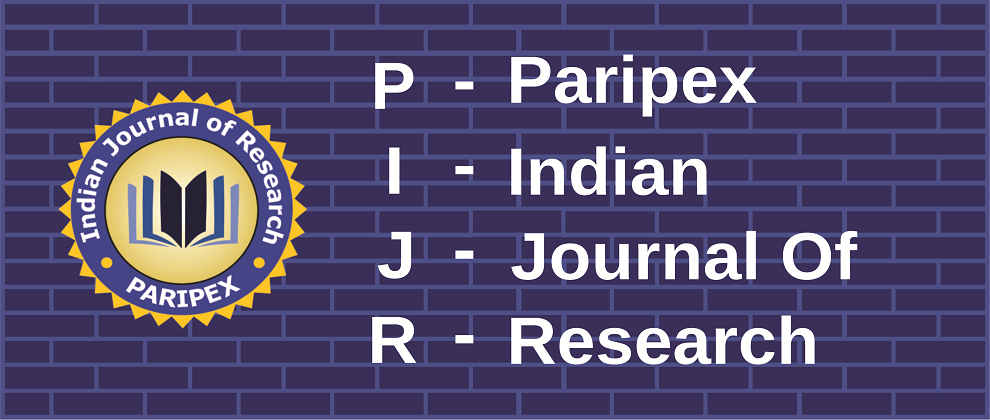Volume : IX, Issue : I, January - 2020
A RETROSPECTIVE STUDY ON INTESTINAL OBSTRUCTION IN NEWBORN
K. Ravi, Dr. Mohamed Zaheer
Abstract :
Introduction: Intestinal obstruction is one of the commonest diagnosis on admission in newborn surgical unit. Intestinal obstruction is still a challenging and commonly encountered acute condition in paediatric surgical practice and it is more difficult in the management in newborn age group. Early diagnosis and treatment is more important because delay in management may lead to mortality and morbidity. The common causes are congenital malformation like atresia of small and large intestine, duplication cyst, congenital pyloric stenosis, malrotation, Hirshsprung’s disease, meconeum ileus, congenital bands, Anorectal malformations etc. AIM OF THE STUDY: To evaluate various aetiologies of neonatal intestinal obstruction, clinical presentations, associated anomalies, surgical techniques and its duration employed in the management and to identify the high risk factors contributing to the morbidity and mortality in newborn intestinal obstruction. MATERIAL AND METHODS: This retrospective study conducted at Raja Mirasdhar Hospital attached with Thanjavur Medical College, Thanjavur from January 2017 to December 2019 evaluating the prognostic factors in neonatal obstruction. The Study identified 48 cases of newborns with intestinal obstruction those who have undergone laparotomies during the study period. Neonates less than 28 days were included in this study with history of abdominal distension, vomiting, failure to pass meconium etc. Newborns more than 28 days and diseases such as Esophageal Atresia, Hirschsprung’s disease and Anorectal malformation were excluded from our study. OBSERVATION: A total of 48 cases evaluated during the period of study. The following data were collected from the case sheets of for evaluation. Demographics like age, sex and weight of the newborn baby was recorded. Special care was taken to identify antenatal history of polyhydramnios and maternal diabetes. Antenatal ultrasonogram if available is taken into consideration. Presence of associated congenital malformation at birth if any was recorded. The general condition of the newborn on admission, presence of dehydration, sepsis and hypothermia were noted. The clinical presentation on admission and any associated conditions like prematurity, jaundice and electrolyte imbalance were recorded. Routine and specific investigations were done for the diagnosis of various aetiology of intestinal obstruction. Surgical technique employed and duration of surgery was noted. Postoperative course of the case and the complications were recorded. The length of the hospital stay of the newborn baby was recorded. Conclusion: The commonest cause of neonatal intestinal obstruction was jejunoileal atresia presenting as bilious vomiting and abdominal distension. The commonest associated condition in neonatal intestinal obstruction is malrotation, prematurity and congenital heart disease. Surgical outcome depended on complexity of the disease and duration of surgery. Low birth weight, prematurity, congenital heart disease and sepsis are high factors for morbidity and mortality in neonatal intestinal obstruction.
Keywords :
Article:
Download PDF
DOI : https://www.doi.org/10.36106/paripex
Cite This Article:
A RETROSPECTIVE STUDY ON INTESTINAL OBSTRUCTION IN NEWBORN, K. Ravi, Dr. Mohamed Zaheer PARIPEX-INDIAN JOURNAL OF RESEARCH : Volume-9 | Issue-1 | January-2020
Number of Downloads : 95
References :
A RETROSPECTIVE STUDY ON INTESTINAL OBSTRUCTION IN NEWBORN, K. Ravi, Dr. Mohamed Zaheer PARIPEX-INDIAN JOURNAL OF RESEARCH : Volume-9 | Issue-1 | January-2020


 MENU
MENU

 MENU
MENU






